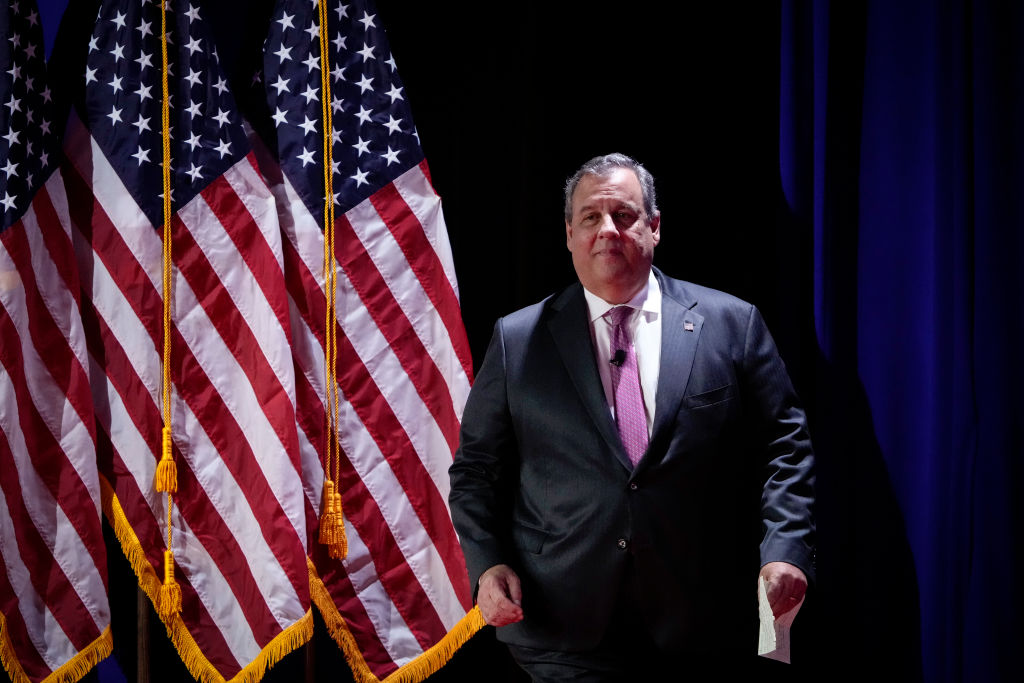Hello and Happy Saturday. I’m here today to talk about some absolute craziness that’s going on right now. No, not whatever it is that’s happening in Russia, where Yevgeny Prigozhin, head of the Wagner Group, appears to have openly revolted against the Russian Ministry of Defense before abruptly changing course. Believe me, we’re keeping an eye on things. But it’s way too early to know exactly what happened.
Instead I’m talking about my hometown Cincinnati Reds, who won their 12th straight game on Friday night, 11-10 over the Atlanta Braves. The excitement actually started a couple of games before the win streak: On June 6, the Reds called up Elly De La Cruz, a 21-year-old shortstop widely regarded as one of the top prospects in all of baseball. In his first game, he got a big hit and the Reds got a big win over the Dodgers. Cincinnati dropped its next two, but hasn’t lost since. Last night, Cruz hit for the cycle—a single, a double, a triple, and a home run. It’s a rare feat that most players never manage: There were only five all of last season. The last Red to do it was Eric Davis in 1989. De La Cruz did it in his 15th game.
This was not supposed to happen. The Reds lost 100 games last season. ESPN predicted they would lose another 92 this season. In late May, they were eight games below .500. And yet last night, while I was dozing off with ESPN on in the background, I heard one of the hosts on SportsCenter say something to the effect of, “The Reds may never lose again.”
But there’s a different point I want to make that’s more relatable to the kind of conversations we have around here every day. What’s going on in Cincinnati is a great example of the markets at work. In April 2022, Reds President Phil Castellini (who happens to be the owner’s son), had to apologize after basically telling Reds fans to go pound sand if they were unhappy about the team’s roster after an offseason full of trades. And then the Reds went on to lose those 100 games. And so when the Reds got off to a slow start this year, the fans let their feelings be known: mostly by not showing up. One game in April this year had the lowest attendance in ballpark history: 7,375. The Reds at one point were drawing far fewer fans than our MLS team, FC Cincinnati.
I’m a bit of a baseball geek so I’d love to sit here and talk about De La Cruz’s exit velocity as a hitter or his speed on the bases. I could spend a few minutes marveling at how 39-year-old first baseman Joey Votto is looking like the Tom Brady of baseball, having hit three home runs in his first week back after a long recovery from shoulder surgery.
It’s safe to say fans have noticed the exciting new rookie and the hot streak. At a day game on Wednesday (for which I was sorely tempted to play hooky), more than 23,000 fans showed up. My husband and I pondered getting tickets for Friday night’s game, but we waited too long—it was a sellout.
I know what you’re thinking: “Team wins, fans show up: News at 11.” It’s easy—and natural—to deride fans who are only showing up to games now as being on the bandwagon. I don’t think that’s entirely fair, at least in the case of the Reds. There’s great affection for the team among the population, and the veteran Votto could probably get elected mayor if he ever chose to run. People love the Reds, they would just like to see a little return on their investment. And I don’t have a problem with that. A professional sports team isn’t just any other business, but that doesn’t mean it shouldn’t have to work hard and make an effort to please its customers.
Some team execs never really get the message. As we note today in a piece on the website, the Oakland Athletics ownership is trying to move the team to Las Vegas. The A’s have a devoted fanbase, but the stadium is decrepit. The team hasn’t won a playoff series since 2006, and it presently has the worst record in baseball. Why should the fans show up? I don’t know about you, but if I’m paying $40 for semi-decent seats and $10 for a hot dog and $15 for a beer, I’d rather not encounter sewage backups, possum infestations, or double-digit losses.
The case of the Athletics shows that the markets don’t always work as they could—and professional sports are really their own kind of market. The ownership of the A’s cares less about fans in the seats than a fancy new stadium financed by taxpayers. Since they can’t get that in Oakland, they’re looking to Vegas.
But for most teams—those whose stadium leases aren’t up in a few years—I don’t think there’s anything wrong with fans pulling back when they perceive the effort or investment isn’t there. Reds ownership knows it stepped in it last year. It’s made some changes (and, let’s be fair, benefitted from playing in a weak division and having that rookie turn out to be better than anyone imagined). Fans responded. The team is winning on the field, the front office is selling more tickets and more merchandise and more concessions, and everyone is happy.
Thanks for reading. Please note that there will be no newsletter next Saturday. See you in a couple weeks!
Not only do GOP presidential candidates have their hands full trying to run against Donald Trump without alienating his very loyal base of supporters, they have to decide whether to pledge that they’ll support the eventual nominee regardless of who wins. The Republican National Committee has made the pledge a requirement to participate in the first primary debate in August, but some candidates are a tad reluctant to vow that they’ll support Trump no matter what. In Boiling Frogs, Nick notes the irony in the situation. The RNC implemented a loyalty pledge in 2015 hoping to keep Donald Trump in line. And now? “Eight years later, the point of the pledge has changed. It’s no longer a device to pressure an illiberal populist into supporting a traditional conservative. It’s a device to pressure traditional conservatives into supporting an illiberal populist.”
Scott Lincicome makes a very interesting point in his latest Capitolism (🔒): We have problems with legal immigration in this country, and they are only exacerbating our problems with illegal immigration. He notes that visa applications far oustrip our ability to process them, leading to incomprehensible wait times for those who want to come here to work. And by incomprehensible, I mean 90 years for some Indian applicants. What happens when we don’t process enough applications? Those who are really determined will just try to come in illegally. He writes: “Past expansions of Mexican guest worker programs—the ‘bracero’ programs of the 1940s and 1950s and then the H-2 program of the 1990s-2000s—coincided with significant declines in border crossings and apprehensions, while more restrictive periods saw much the opposite. In short, by driving would-be illegal border crossers into legal visas, the United States got more workers and fewer border problems.”
If you are concerned about Donald Trump getting the 2024 nomination, is it a good idea to jump into the race and potentially fragment the anti-Trump electorate a little more? Former Rep. Will Hurd of Texas thinks it’s worth the risk. He announced his candidacy on Thursday, and the Dispatch Politics team was on the case. “Debate is a good thing; options are a good thing,” Hurd told The Dispatch shortly after his announcement. We shouldn’t be afraid of having a diversity of voices.” How will Hurd separate himself from the pack? It’s a kind of crazy theory for this era: He’s going to focus on policy and governance. We write: “In our interview, Hurd said his top priorities are addressing ‘persistent’ inflation and the economic challenges posed by artificial intelligence technology; the ‘new cold war with China’; and a public education system he described as failing. One word Hurd never uttered: ‘Woke.’”
And here’s the best of the rest:
- The Senate Health, Education, Labor, and Pensions Committee has a long record of bipartisan cooperation. But Bernie Sanders, chairman of the committee, has spent the last few months holding partisan meetings and focusing on initiatives that have no chance of passing in the Senate. Price has the details.
- National conservatives sound an awful lot like progressives on economics and family policy. Scott Winship and Jeremy Horpedahl explain that that’s because both sides rely on the same bad math to argue (wrongly) that it’s getting harder for families to thrive.
- It sure would be nice for NATO to welcome Sweden as a new member at its upcoming July summit, but Turkish President Recep Tayyip Erdogan (along with buddy Hungarian President Viktor Orban) is still withholding his support. Charlotte lays out exactly what their grievances are and what kind of diplomacy will be required to overcome them.
- A year after the Dobbs decision that overturned Roe v. Wade, pollster Kristen Soltis Anderson and her co-author Lauren Leader report that a survey they conducted shows that Republican women are not monolithically pro-life and have wide-ranging opinions on abortion.
- To mark Juneteenth, Chris Stirewalt reflects not on the end of slavery but on the decisions the Founding Fathers made that kept the institution alive for nearly a century after we adopted the Constitution. The Founders “did not create a nation to preserve slavery, but they preserved slavery to create a nation,” he writes.
- The pods! The pods! On Advisory Opinions, Sarah and David discuss Justice Samuel Alito’s preemptive response to allegations by ProPublica that he should have recused himself from certain cases and disclosed a 2008 trip. Jonah welcomes Reason senior editor Stephanie Slade to The Remnant to discuss Patrick Deneen’s new book, Regime Change: Toward a Postliberal Future. And on The Dispatch Podcast, Audrey interviews new Georgia GOP Chairman Josh McKoon about how he plans to unite a party that’s divided over Donald Trump and the 2020 election.









Please note that we at The Dispatch hold ourselves, our work, and our commenters to a higher standard than other places on the internet. We welcome comments that foster genuine debate or discussion—including comments critical of us or our work—but responses that include ad hominem attacks on fellow Dispatch members or are intended to stoke fear and anger may be moderated.
You are currently using a limited time guest pass and do not have access to commenting. Consider subscribing to join the conversation.
With your membership, you only have the ability to comment on The Morning Dispatch articles. Consider upgrading to join the conversation everywhere.